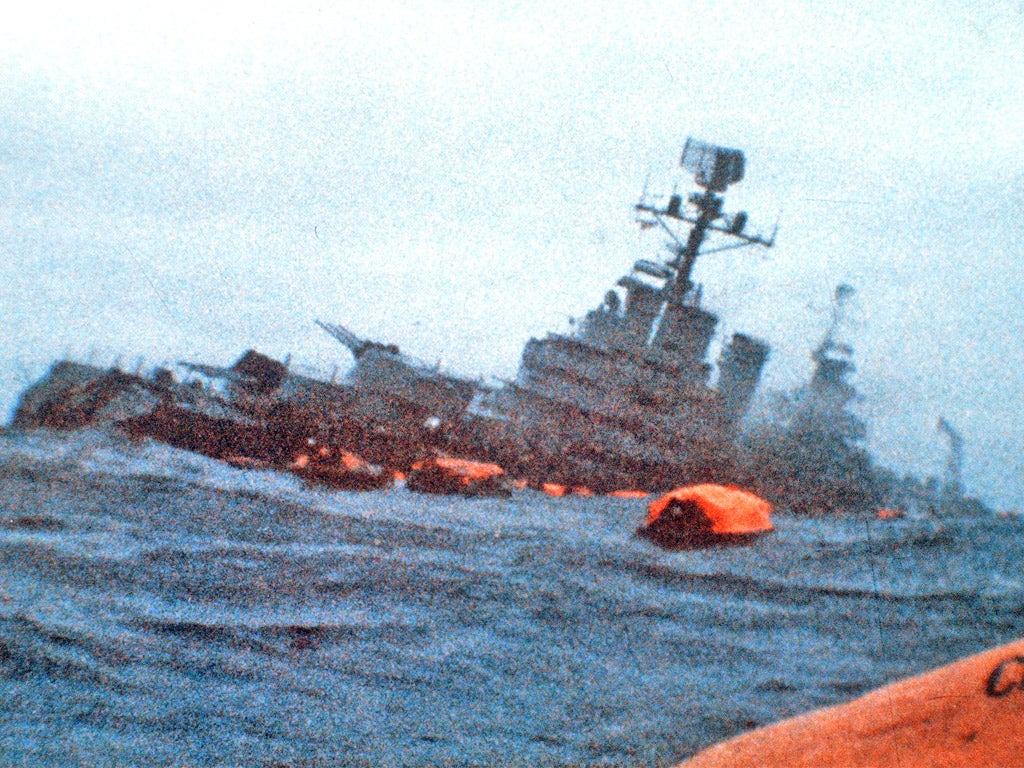Your support helps us to tell the story
From reproductive rights to climate change to Big Tech, The Independent is on the ground when the story is developing. Whether it's investigating the financials of Elon Musk's pro-Trump PAC or producing our latest documentary, 'The A Word', which shines a light on the American women fighting for reproductive rights, we know how important it is to parse out the facts from the messaging.
At such a critical moment in US history, we need reporters on the ground. Your donation allows us to keep sending journalists to speak to both sides of the story.
The Independent is trusted by Americans across the entire political spectrum. And unlike many other quality news outlets, we choose not to lock Americans out of our reporting and analysis with paywalls. We believe quality journalism should be available to everyone, paid for by those who can afford it.
Your support makes all the difference.The government of Argentina has played an unlikely card in the escalating dispute over the Falkland Islands: re-naming its domestic football league after the General Belgrano, the warship controversially sunk during the last military conflict there.
In an effort to galvanise public anger over las Malvinas, the country's President, Cristina Fernandez de Kirchner, approved a plan for the forthcoming season to see the nation's biggest professional clubs compete in the first-division Crucero General Belgrano.
The name, which translates as "Cruiser General Belgrano" refers to the ship sunk by a British submarine during the Falklands conflict in May 1982, with the loss of 323 crew.
To most of Ms Kirchner's countrymen, the event does not, however, symbolise catastrophic military defeat. Instead, it serves as a reminder of Anglo-Saxon duplicity: the cruiser was outside the so-called "exclusion zone" around the islands when it was attacked.
Football arouses huge passion in Argentina, and the government is able to re-name the league on the grounds that it owns the rights to all first-division matches and shows the games on television.
Yesterday's move has nonetheless divided fans' opinion. Judging by views on the blogosphere, some believe it to be a fitting tribute to men who fell in the service of their country, while others say that it represents a cynical attempt to leverage political gain from a national tragedy. Elsewhere, media reports suggested the government also intends to rename its first-division trophy "Gaucho Rivero". That represents a tribute to Antonio Rivero, a cattle herder who killed five British settlers on the Falklands in an uprising in 1833.
Like almost everything about the islands, Rivero's legacy sparks fierce debate. Though a political hero in some quarters, he is said in others to have been motivated not by national pride but by a dispute over working conditions.
Regardless of the historical debate, President Kirchner is anxious to keep public opinion on her side as the 30th anniversary of the conflict approaches. She also hopes to retain diplomatic support from Latin American allies who can assist efforts to place commercial restriction on Las Malvinas.
Tensions have been bubbling away for generations, but have in recent years been heightened by the discovery of potentially lucrative gas and oilfields off the coast of the islands. The diplomatic pressure was further raised last week when the British government announced that Prince William has been sent to the islands for six weeks. In another move which has infuriated Argentina, a Royal Navy destroyer, HMS Dauntless, has also been dispatched to the region.

Join our commenting forum
Join thought-provoking conversations, follow other Independent readers and see their replies
Comments